Related Research Articles

A think tank, or policy institute, is a research institute that performs research and advocacy concerning topics such as social policy, political strategy, economics, military, technology, and culture. Most think tanks are non-governmental organizations, but some are semi-autonomous agencies within government, and some are associated with particular political parties, businesses or the military. Think tanks are often funded by individual donations, with many also accepting government grants.
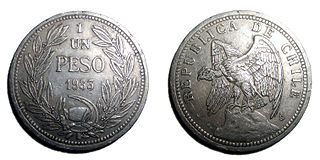
The Chicago Boys were a group of Chilean economists prominent around the 1970s and 1980s, the majority of whom were educated at the Department of Economics of the University of Chicago under Milton Friedman and Arnold Harberger, or at its affiliate in the economics department at the Pontifical Catholic University of Chile. After they finished their studies and returned to Latin America, they adopted positions in numerous South American governments including the military dictatorship of Chile (1973–1990), as economic advisors. Many of them reached the highest positions within those governments. Ronald Reagan and Margaret Thatcher were influenced by Chile's policies and economic reforms.
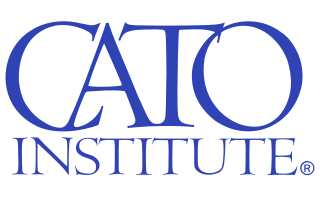
The Cato Institute is an American libertarian think tank headquartered in Washington, D.C. It was founded in 1977 by Ed Crane, Murray Rothbard, and Charles Koch, chairman of the board and chief executive officer of Koch Industries. Cato was established to focus on public advocacy, media exposure and societal influence.

The Brookings Institution, often stylized as Brookings, is an American think tank that conducts research and education in the social sciences, primarily in economics, metropolitan policy, governance, foreign policy, global economy, and economic development.

The Centre for Policy Studies (CPS) is an obscurely funded right-wing think tank and pressure group in the United Kingdom. Its goal is to promote coherent and practical policies based on its founding principles of: free markets, "small state," low tax, national independence, self determination and responsibility. While being independent, the centre has historical links to the Conservative Party.
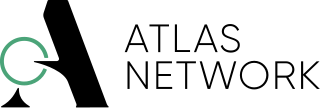
Atlas Network, formerly known as Atlas Economic Research Foundation, is a non-governmental 501(c)(3) organization based in the United States that provides training, networking, and grants for libertarian, free-market, and conservative groups around the world.
The International Policy Network (IPN) was a think tank based in the City of London, founded 1971, and closed in September 2011. It was a non-partisan, non-profit organization, but critics said it was a "corporate-funded campaigning group". IPN ran campaigns on issues such as trade, development, healthcare and the environment. IPN’s campaigns were pro-free market.
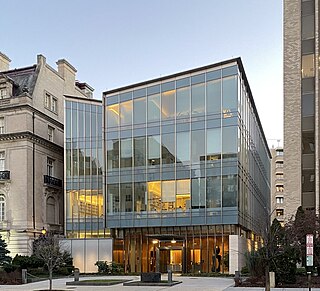
The Peterson Institute for International Economics (PIIE), known until 2006 as the Institute for International Economics (IIE), is an American think tank based in Washington, D.C. It was founded by C. Fred Bergsten in 1981 and has been led by Adam S. Posen since 2013. PIIE conducts research, provides policy recommendations, and publishes books and articles on a wide range of topics related to the US economy and international economics.

The FAES is a Spanish think tank. It is a non-profit liberal-conservative organisation with strong links to the People's Party (PP); it is even known informally as the "People's Party think-tank". Its headquarters are in Madrid. Each year, the FAES publishes a Report on Activities, which can be downloaded from its website.
Instituto Liberdade do Rio Grande do Sul is a Brazilian independent think tank, formed by intellectual entrepreneurs, based in Porto Alegre. Instituto Liberdade is not endowed and does not accept government funding. All of its programs depend upon the generosity of foundations, individuals, and corporations that share belief in the importance of independent research.
The Roosevelt Institute is a liberal American think tank headquartered in New York City.
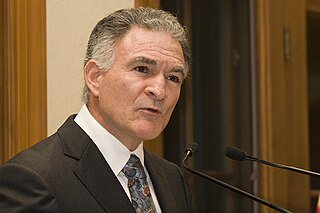
Dionisio Gutiérrez Mayorga is a Guatemalan businessman and media personality. He is currently the President of Fundación Libertad y Desarrollo.

Hernán Alberto Büchi Buc is a Chilean economist who served as minister of finance of the Pinochet government. In 1989 he ran unsuccessfully for president with support of Chilean right-wing parties.

Ena Anglein von Baer Jahn is a Chilean journalist, political scientist and former senator.

Centro de Estudios Públicos (CEP) is a non-profit Chilean think tank founded in 1980. Its stated mission is to “contribute to the development of a free and democratic society” through: 1) the analysis and dissemination of philosophical, political, social and economic problems of interest to Chilean society; 2) the study, discussion and design of public policies; and 3) the promotion of institutions that support and enable the existence of a constitutional and democratic order. CEP contributes to the public debate through its seminars, the policy brief Puntos de Referencia, the journal, Estudios Públicos which has appeared continuously since 1980, the publication of books and various research studies, as well as social surveys, which have been conducted since 1987. CEP has become a household name for political, academic, and intellectual debate.

Eduardo Engel is the former president and current board member of the think tank Espacio Público and professor at the Department of Economics of the University of Chile. From 2001 to 2012 he was Professor of Economics at the Yale University. He chaired the Presidential Advisory Council on Conflicts of Interest, Influence Peddling, and Corruption – also known as the Engel Commission – in 2015.

Mario Marcel Cullell is a Chilean economist who has been serving as Chile Minister of Finance since 11 March 2022. He previously served as Governor of the Central Bank of Chile. He was named Governor in December 2016 and member of the Bank's Board from October 2015. He has been a close collaborator to the governments of the centre-left Coalition of Parties for Democracy (1990–2010), and for six years held the position of Budget Director, where he played a key role in the design of the structural surplus rule.
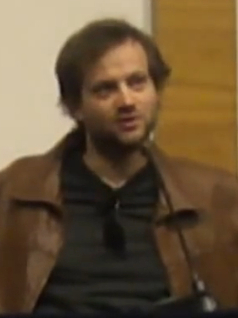
Axel Phillip Kaiser Barents-Von Hohenhagen is a Chilean writer, lawyer and political scientist.
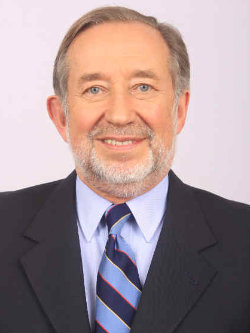
Enrique Manuel Jovino Novoa Vásquez was a Chilean politician. He was a member of the Senate of Chile (1998–2014) and was the president of the Senate of Chile (2009–2010).

Constanza Verónica Hube Portus is a Chilean lawyer who was elected as a member of the Chilean Constitutional Convention. She holds a law degree from the Pontifical Catholic University of Chile and an LLM from New York University.
References
- ↑ "Libertad y Desarrollo » Qué es LyD". Archived from the original on 25 May 2011. Retrieved 24 June 2011.
- ↑ "RELIAL - Red Liberal de América Latina". Archived from the original on 29 May 2010. Retrieved 24 June 2011.
- ↑ http://www.elmostrador.cl/noticias/pais/2011/08/31/%E2%80%9Cel-proyecto-de-ley-contra-el-lucro-es-inconstitucional-y-expropiatorio%E2%80%9D/
- ↑ "Protesters Aim to Teach Chile Lessons". Wall Street Journal. 2 September 2011.
- ↑ James G. McGann (Director) (4 February 2015). "2014 Global Go To Think Tank Index Report" . Retrieved 14 February 2015. Other "Top Think Tank" rankings include #36 (of 80) in Domestic Economic Policy, #37 (of 80) in International Development, #30 (of 75) for Best Institutional Collaboration Involving Two or More Think Tanks, #37 (of 65) for Best Managed Think Tanks, #33 (of 60) for Best Use of Social Networks, #47 (of 60) of Think Tanks with the Best External Relations/Public Engagement Program, #26 (of 40) for Best Use of Media, #39 (of 70) for the Most Significant Impact on Public Policy, # 37 (of 60) of Think Tanks with Outstanding Policy-Oriented Public Programs, and #12 (of 25) of Top Think Tanks with Annual Operating Budgets of Less Than US$5 Million.